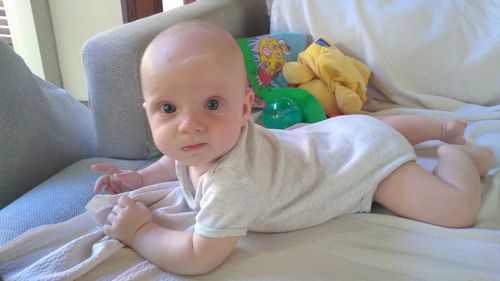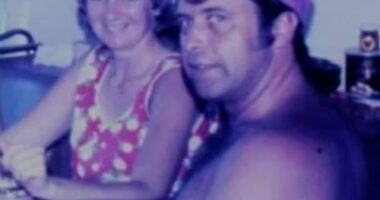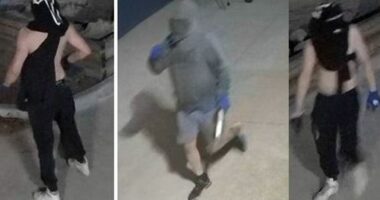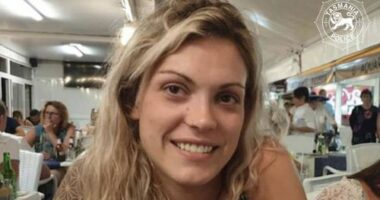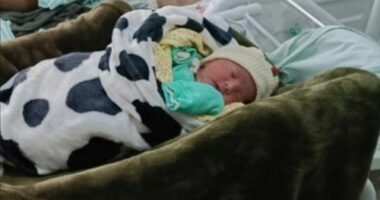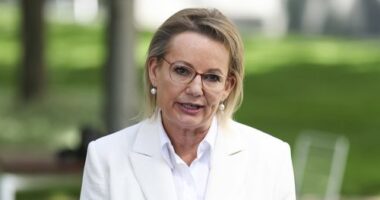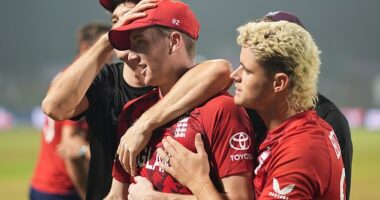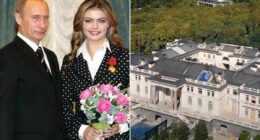Share this @internewscast.com
Exclusive: Today, Saran Kaur’s son, Ari, is a bright and bubbly three-and-a-half-year-old who is full of personality.
“He is gorgeous – my blue-eyed, beautiful baby. He is very happy, healthy and intelligent,” Kaur said.
Although the Brisbane mother and attorney reflects fondly on the successful IVF conception and birth of her child, Kaur admits that one distressing event during the process continues to linger in her memory.

For four stressful days, Kaur thought her hopes of having a third child were destroyed when her final six embryos were inexplicably lost in the post.
It was four-and-a-half years ago, in November 2020, and Kaur had arranged for her embryos to be flown from Melbourne to Brisbane.
The embryos were being relocated from Melbourne IVF, the clinic where she underwent procedures for her first two children, to Monash IVF in Brisbane, which was nearer to her home.
After six months of paperwork delays, the day finally arrived when the embryos were to be transported interstate – November 23.
That morning, Kaur said Melbourne IVF notified her that the embryos had been picked up via a third-party courier organised by Monash IVF.
According to Kaur, the embryos were supposed to reach the Brisbane facility later that same day, and she was informed that she would receive notification once the transfer was complete.
Kaur said she was on alert, but not overly concerned when she did not hear from Monash IVF on the first day.
“I didn’t call them that day. I thought, ‘Oh, maybe they’re busy. I’ll call them tomorrow’,” she said.

When Kaur rang Monash IVF the next morning, she was alarmed when staff could not tell her where the embryos were.
“They said, ‘We don’t know where they are. They should have arrived. They might be in the lab’. They were just very vague,” Kaur said.
When she did not get a call back from the lab staff, Kaur said she tried to escalate her case with a more senior staff member at Monash IVF that same afternoon.
However, the staff member could not provide any more answers about where the embryos were.
“No-one knew where they were. I was shaking. I don’t know what to do, because they could have been left anywhere – in a storage shed at the airport, or in someone’s van.”
For two more agonising days, Kaur said she was left in the dark.
Kaur said what frustrated and angered her the most was that Monash IVF did not seem to be very concerned at all.
They should have been treating her embryos like the potential people they were, not just a package, she said.
“You can imagine my anxiety, and nobody was listening to me,” she said.
Finally, on November 26 – day four – Kaur said she got a call from Melbourne IVF.
“They told me that my embryos had been returned there and asked what was happening,” Kaur said.
Kaur said she felt relief to hear that the embryos had been found, but that relief was almost immediately replaced with anxiety over whether the embryos were okay.
A scientist at Melbourne IVF then explained that the Cryoguard indicator on the cannister containing the embryos was green, indicating they had been kept at a suitable temperature and were therefore still viable.

Even so, a niggling anxiety would follow Kaur throughout her pregnancy.
“All the time I was pregnant with my son, it was still in the back of my mind, I was wondering, what happens if they were damaged, what if my son has a disability or something?” Kaur said.
“How sure were they that they were still viable? I didn’t know, until I had my son and I could see that he was healthy – you lose your trust.”
After the mix-up in the post, Kaur decided to keep her embryos with Melbourne IVF, and completed her IVF journey there.
She lodged a complaint with Monash IVF, which investigated the incident.
The cannister containing the embryos was incorrectly packaged by Melbourne IVF, the letter said.
The embryos were then held by the courier company at its sorting facility, before being returned to Melbourne IVF three days later.
“The courier company failed to advise our client of this and it was not until November 26 that our client was notified that the delivery of the embryos had not been successful.
Monash IVF had “no control over the circumstances”, the letter stated.
“We are pleased to learn that the patient has been successful in her IVF journey and wish her and her family all the best for the future.”
A spokesperson for Melbourne IVF denied the embryos were incorrectly packaged.
“Melbourne IVF followed best practice protocols for the safe preparation, labelling, and packaging of this embryo transfer, which was arranged by Monash IVF using their chosen third-party courier,” the spokesperson said.
“The embryos were returned to Melbourne IVF after the courier failed to complete the delivery.
“We recognise the emotional toll this experience had on the patient and are pleased we were able to continue her care and support a successful outcome at Melbourne IVF.”
Kaur said Monash IVF should have kept her updated throughout the transportation process.
“When I read about that case, I got a flashback. I was thinking, ‘Oh my God, that poor woman’,” Kaur said.
Monash IVF has apologised for the embryo transfer debacle, which was discovered in February after the birth parents asked to transfer their remaining frozen embryos to another provider.
